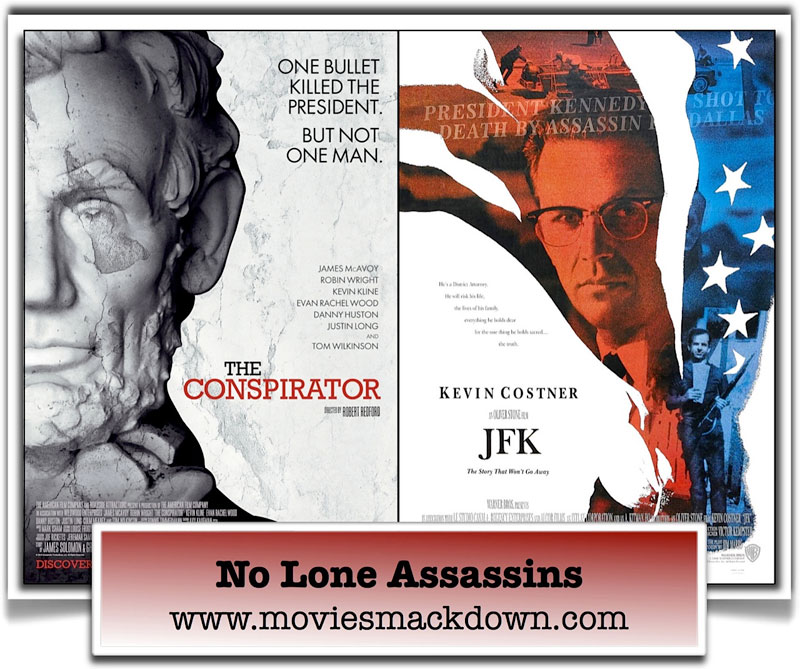
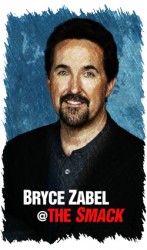 The Smackdown
The Smackdown
Two presidents get assassinated, a hundred years apart. Both assassins (alleged, anyway) get killed before they can face trial, and they go down in history firmly attached to their middle names, John Wilkes Booth and Lee Harvey Oswald.
In these two films, the main characters are lawyers, drawn into the fray by a sense of justice, who end up arguing unpopular positions (at least to the powers-that-be) in court — the earlier film on offense, this latest film on defense. Both men pursue their out-of-step sense of justice to the extreme, so much so that the women in their lives think they’ve gone quite insane.
At the end of the day, both viewing experiences cause you to consider that maybe it’s not the courts that really decide the winners anyway, maybe it’s just the movies we make about them.
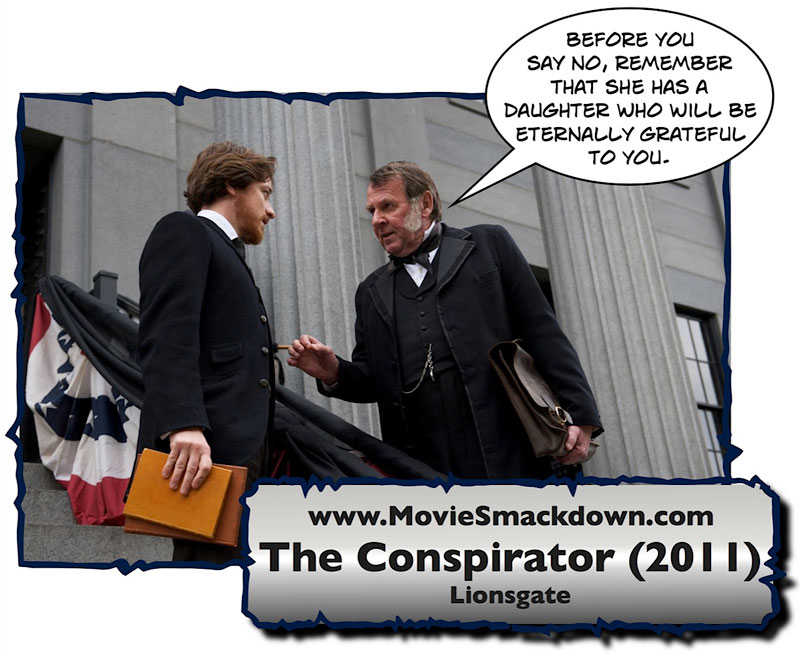
The Challenger
We all know that a crazed actor and Confederate sympathizer John Wilkes Booth killed President Lincoln. We know that the conspirators were rounded up, tried and hanged. What you may not know is that one of them was a woman, Mary Surratt, and that while she may not have been entirely innocent she probably was not sufficiently guilty in a legal sense to forfeit her life. That’s the bite of the apple that director Robert Redford takes in The Conspirator which tells the story of a young Union veteran named Frederick Aiken (James McAvoy) to whom the task of defending Surratt falls. When he reluctantly agrees to this duty, he just knows she is guilty but, the more he learns, the more he realizes her legal rights are being sacrificed to the greater good of getting revenge for a rightly angered American population. He tries to save her life but the odds are long.
The Defending Champion
Oliver Stone directed JFK specifically to raise questions about whether Lee Harvey Oswald acted alone and that’s exactly what it does again and again. The vessel he uses is New Orleans District Attorney Jim Garrison (Kevin Costner) who brought the only criminal case ever in the Kennedy assassination. It’s really David and Goliath. Garrison has meager resources and the other side has everything. The fact that Garrison soldiers on and never quits is testament to his believing that he has the one thing that matters in such cases: the truth. His obsession to get at it is nearly maniacal and his reasons are as simple as they are powerful: he hates being lied to and he is willing to go to almost any means to stop the liars. There is so much information presented in this film that you may be physically tired when you finish watching it.
The Scorecard
Both films are long on style: The Conspirator washes its colors out almost to a near-sepia (like The Assassination of Jesse James by the Coward Robert Ford) while JFK maintains its kinetic pace by flashcuts, flashbacks, mixed media, real film, matching shots and sleight-of-hand. Not everyone will love what Oliver Stone brought to his earlier film, but more people will comment on his film’s style than Redford’s.
While both in some ways are whodunnits, The Conspirator is mostly a courtroom drama while JFK is a suspense thriller with implied stakes of life and death.
The scripts and the stories they tell fall on almost the opposite sides of the spectrum. The Conspirator is almost too easy to grasp: Mary Surrat probably knew more than she said she did, but it’s her son who’s guilty and not her. Got it. JFK, on the other hand, never misses a chance to raise another question and to puncture another theory while offering a new one. Who did it? Well, try everybody.
Each film has a collection of truly superior performances, for sure, and both McAvoy and Costner are excellent choices, even if not entirely believable in the demanding roles. JFK, however, never really stumbles in its casting but The Conspirator does. Justin Long is perfect as an Apple pitchman but a Union soldier he’s not. Similarly, Alexis Bledel seems just too contemporary to be believable.
Both McAvoy and Costner get to deliver movie-style closing arguments toward the end of their films. McAvoy’s is surprisingly good. But Costner’s is surpisingly powerful. It’s long, it’s passionate and it’s aimed not at the jury in the case but at the audience in the movie theaters.
The Decision
Let’s face it. We are already rapidly getting to the place in our lifetimes where the Kennedy assassination seems almost as lost in history as the Lincoln assassination. It’s been nearly fifty years since the awful events in Dallas and most people alive today have no real memory or appreciation of it. My kids only slightly more relate to Kennedy than they do Lincoln. Their kids will see no distinction. Both Abe and JFK are dead presidents.
But there are some people it still matters to and I’m one of them. JFK is the more important film. It has a lot to say about where America is today and even though The Conspirator tries to be relevant with its military tribunals angle, it’s still not the same.
Besides, we know who killed Lincoln and we know who he conspired with. The Kennedy issue is still unsettled. Most of us are pretty sure it was a conspiracy but we’re not at all sure who conspired to do what. JFK, the film, is alive with that sense of angst and its slap-in-the-face challenge to think about it, not as a moviegoer but as a citizen.
Probably The Conspirator is more historically accurate than JFK which manages to convince you that almost everybody you can imagine had a motive and a plan to assassinate the president. But I don’t think that matters. Stone’s passion play may be that rare movie that actually makes you want to go read a book after you’ve seen it to learn even more. The Conspirator is a very smart film, too, and there is a lot to recommend it.
But not enough to win the Smackdown. For that, it’s All the Way with JFK.


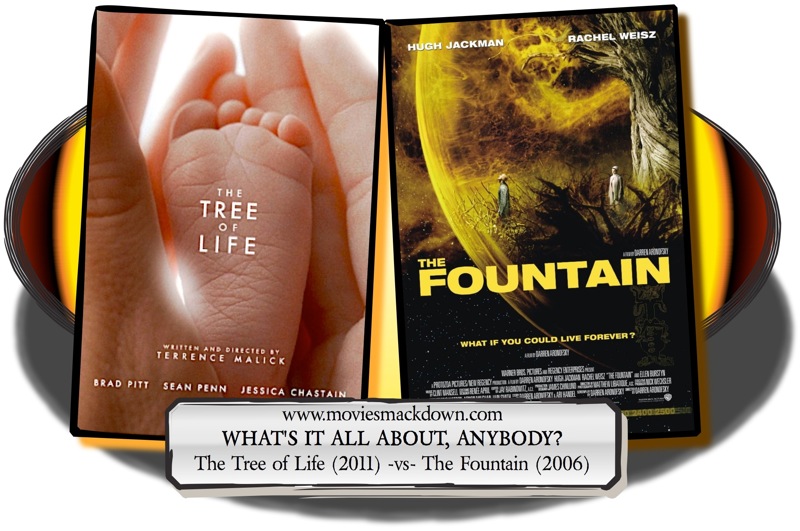
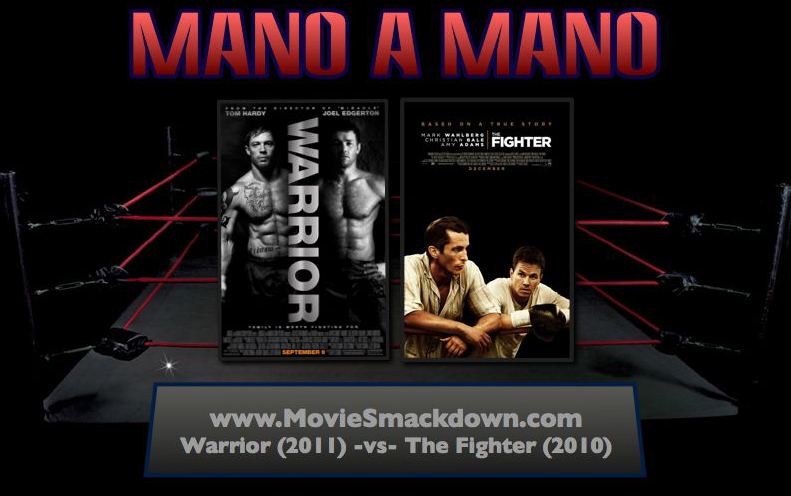
JFK is hands down the best film Oliver Stone has made to-date. This includes Any Given Sunday, Platoon, and yes, even Alexander. Wait, that last one wasn’t supposed to be there. Sorry, I meant World Trade Centre.